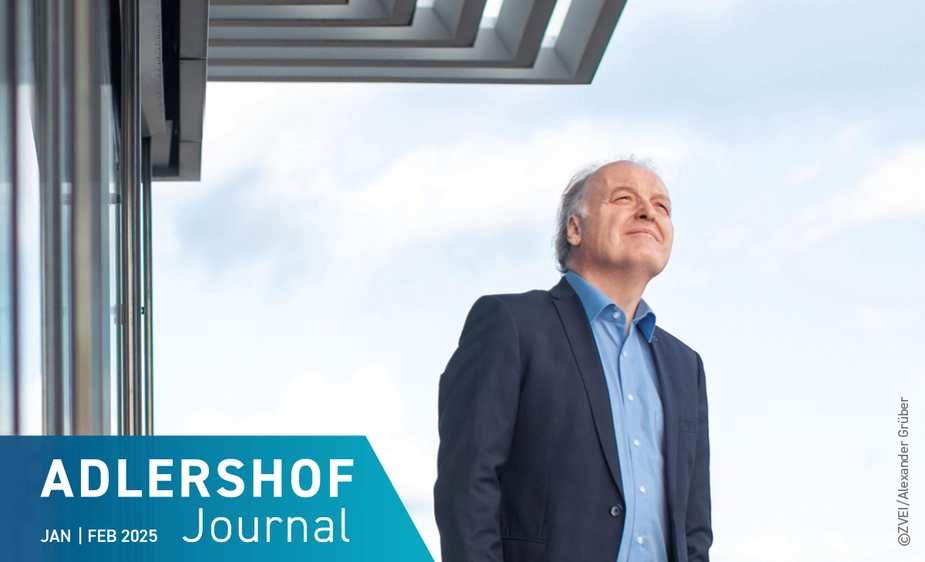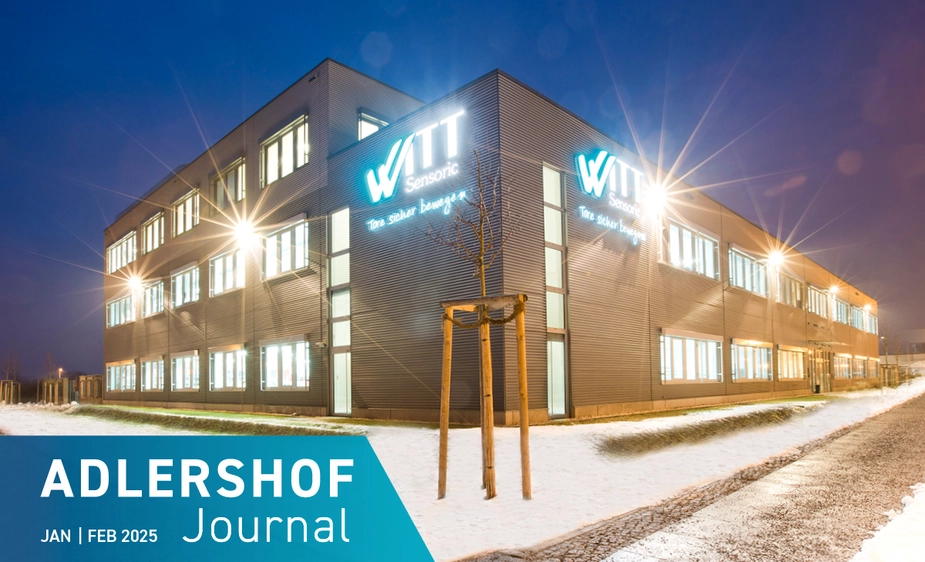Pepperl+Fuchs build in Adlershof
A manufacturer of industrial sensors and explosion protection solutions is consolidating its Berlin locations
What began in 1945 as a radio workshop in Mannheim has since become a global leader in industrial sensors and explosion protection solutions, with over 900 million euros in revenue and 6,850 employees. The Pepperl+Fuchs Group is now planning a new building in Adlershof to consolidate its Berlin-based locations.
Speaking about his company’s construction plans in Germany’s largest technology park, Gunther Kegel, CEO of the Pepperl+Fuchs Group, begins to wax lyrically: ‘Adlershof is an amazing location!’ He praises the excellent transport links since the completion of Berlin Brandenburg Airport, highlights the surroundings with its 1,300 companies and 18 scientific institutions, and talks about the thousands of students who frequent Adlershof. All of this, he says, was crucial. As a global leader in industrial sensors and explosion protection solutions, Pepperl+Fuchs relies on both innovation partnerships with institutions from science and research and highly qualified specialists in electrical engineering for hardware and software development. With more and more businesses competing for a limited pool of graduates in these fields, it is essential to be present at locations like Adlershof and to fully leverage the available networking opportunities.
At the end of 2022, Pepperl+Fuchs bought Witt Sensoric, a successful SME with a modern company building and property on Ernst-Lau-Strasse right by the landscaped park. However, Kegel’s familiarity with Berlin dates even further back than that. Twenty-two years before, his company had already bought a Berlin-based electronics specialist called Visolux. Following the acquisition, a fledgling Visolux turned its fortunes around, relocated to Tempelhof in South Berlin, and began focusing on research and development, assembling and testing complex components, and preparing for series production. ‘However, our headquarters on Kitzingstrasse is rented. This makes it easier for us to consolidate our two Berlin sites,’ explains the chairman of the board. Moreover, the acquisition of Witt Sensoric GmbH opened up the opportunity to sign a leasehold agreement for the directly adjacent property. ‘We are now planning an expansion on this site, with our Tempelhof team set to move in as early as 2027,’ he reports, noting that the lease on the Tempelhof premises will expire that same year.
Like many companies around the world, Pepperl+Fuchs is drawing lessons from the experiences of the coronavirus pandemic. ‘We learned that our employees remain highly productive even while working from home,’ says Kegel. Since then, they have been free to work from their home offices for up to three days a week. At their new headquarters, the company plans to create modern workspaces using the Work-21 concept. This features shared desks—and a reduced total floor area compared to the previously separate locations. ‘If necessary, we will lease additional space to test our sensors,’ he explains. This is important, for instance, when it comes to testing cutting-edge LiDAR (Light Detection and Ranging) scanners with a 60-metre range. Since such tests are relatively rare, it makes more sense to act flexibly rather than maintain seldom-used laboratory spaces. Following the triumph of so-called lean production methods, it seems we are now entering the era of lean facilities. The plans for the Pepperl+Fuchs building in Adlershof are in line with this trend. Recently, the Munich-based ifo Institute released a study revealing that twelve percent of service providers and large companies in Germany have already reduced their office space, with another 14 percent planning to do so in the next five years. Kegel does not view these plans merely as cost-cutting measures. Instead, he hopes that the flexibility in the work environment, the merging of the Berlin teams, and their mixing at the new location will lead to more intensive exchanges and new synergies.
Ralf Nestler for Adlershof Journal


